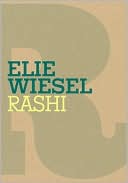Category Books
- Fiction Books & Literature
- Graphic Novels
- Horror
- Mystery & Crime
- Poetry
- Romance Books
- Science Fiction & Fantasy
- Thrillers
- Westerns
- Ages 0-2
- Ages 3-5
- Ages 6-8
- Ages 9-12
- Teens
- Children's Books
- African Americans
- Antiques & Collectibles
- Art, Architecture & Photography
- Bibles & Bible Studies
- Biography
- Business Books
- Christianity
- Computer Books & Technology Books
- Cookbooks, Food & Wine
- Crafts & Hobbies Books
- Education & Teaching
- Engineering
- Entertainment
- Foreign Languages
- Game Books
- Gay & Lesbian
- Health Books, Diet & Fitness Books
- History
- Home & Garden
- Humor Books
- Judaism & Judaica
- Law
- Medical Books
- New Age & Spirituality
- Nonfiction
- Parenting & Family
- Pets
- Philosophy
- Political Books & Current Events Books
- Psychology & Psychotherapy
- Reference
- Religion Books
- Science & Nature
- Self Improvement
- Sex & Relationships
- Social Sciences
- Sports & Adventure
- Study Guides & Test Prep
- Travel
- True Crime
- Weddings
- Women's Studies
Rashi »

Authors: Elie Wiesel, Catherine Temerson
ISBN-13: 9780805242546, ISBN-10: 0805242546
Format: Hardcover
Publisher: Knopf Doubleday Publishing Group
Date Published: August 2009
Edition: (Non-applicable)
Author Biography: Elie Wiesel
Since his unprecedented memoir Night woke up the world to the atrocities of the Holocaust in 1958, Nobel laureate Elie Wiesel has dedicated his days to turning his survival story from one of horror to one of hope. From several works inspired by his experience to his insightful reflections in After the Darkness, Wiesel s work serves to both admonish and inspire.
Book Synopsis
From Elie Wiesel, winner of the Nobel Peace Prize, comes a magical book that introduces us to the towering figure of Rashi—Rabbi Shlomo Yitzchaki—the great biblical and Talmudic commentator of the Middle Ages.
Wiesel brilliantly evokes the world of medieval European Jewry, a world of profound scholars and closed communities ravaged by outbursts of anti-Semitism and decimated by the Crusades. The incomparable scholar Rashi, whose phrase-by-phrase explication of the oral law has been included in every printing of the Talmud since the fifteenth century, was also a spiritual and religious leader: His perspective, encompassing both the mundane and the profound, is timeless.
Wiesel’s Rashi is a heartbroken witness to the suffering of his people, and through his responses to major religious questions of the day we see still another side of this greatest of all interpreters of the sacred writings.
Both beginners and advanced students of the Bible rely on Rashi’s groundbreaking commentary for simple text explanations and Midrashic interpretations. Wiesel, a descendant of Rashi, proves an incomparable guide who enables us to appreciate both the lucidity of Rashi’s writings and the milieu in which they were formed.
The Washington Post - Justin Moyer
Rashi is not for the uninitiated or anyone uninterested in why Yahweh used the plural possessive when making man "in our image" or whether Abraham's concubine Hagar was actually a pharaoh's daughter. But if the Prophets' trials and tribulations seem arcane, Wiesel's great respect for their long-lived stories reminds us that, though we may value Christopher Hitchens, it's unlikely that we will debate his every nay-saying syllable 1,000 years hence.
Table of Contents
1 Impressions 3
2 Biblical commentaries 32
3 Israel, the people, and the land 63
4 Sadness and memory 79
Chronology 79
Glossary 103
Bibliography 109
Subjects
 Religious Biography
Religious Biography  Judaism - Biography
Judaism - BiographyBiography
 All Biography
All Biography  Peoples & Cultures - Biography
Peoples & Cultures - BiographyBiography
 All Biography
All Biography  Religious Biography
Religious BiographyChristianity
 Judaism & Judaica
Judaism & Judaica  Judaism - Biography
Judaism - BiographyChristianity
 Judaism & Judaica
Judaism & Judaica  Rabbinate
RabbinateChristianity
 Judaism & Judaica
Judaism & Judaica  Scriptures & Rabbinical Literature - Judaism
Scriptures & Rabbinical Literature - JudaismChristianity
 Judaism & Judaica
Judaism & Judaica  Theology, Jewish
Theology, JewishChristianity
 Religious Biography
Religious Biography  Judaism - Biography
Judaism - BiographyJudaism & Judaica
 Rabbinate
Rabbinate  Rabbis -> France -> Troyes -> Biography
Rabbis -> France -> Troyes -> BiographyNonfiction
 Social Sciences
Social Sciences  Jewish Studies
Jewish StudiesReligion Books
 Judaism & Judaica
Judaism & Judaica  Judaism - Biography
Judaism - BiographyReligion Books
 Judaism & Judaica
Judaism & Judaica  Rabbinate
RabbinateReligion Books
 Judaism & Judaica
Judaism & Judaica  Scriptures & Rabbinical Literature - Judaism
Scriptures & Rabbinical Literature - JudaismReligion Books
 Judaism & Judaica
Judaism & Judaica  Theology, Jewish
Theology, JewishReligion Books
 Religious Biography
Religious Biography  Judaism - Biography
Judaism - BiographyScience & Nature
 Social Sciences
Social Sciences  Jewish Studies
Jewish StudiesSocial Sciences
 Jewish Studies
Jewish Studies  Jewish - Biography
Jewish - BiographyChristianity
 Christianity
Christianity  Religious Biography
Religious BiographyChristianity
 Christianity
Christianity  All Religion
All ReligionNonfiction
 Biography
Biography  Religious Biography
Religious BiographyNonfiction
 Biography
Biography  All Biography
All BiographyNonfiction
 Religion
Religion  Religious Biography
Religious BiographyNonfiction
 Religion
Religion  All Religion
All ReligionReligion Books
 Christianity
Christianity  Religious Biography
Religious BiographyReligion Books
 Christianity
Christianity  All Religion
All Religion
